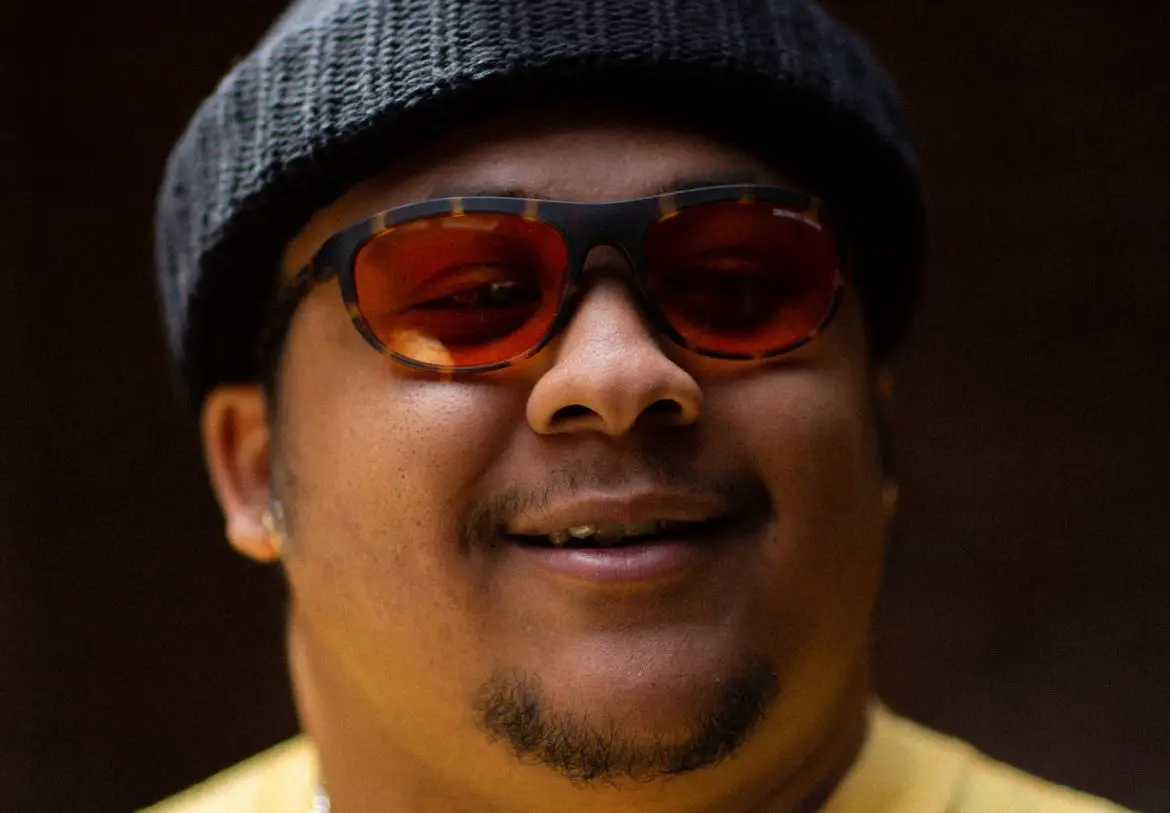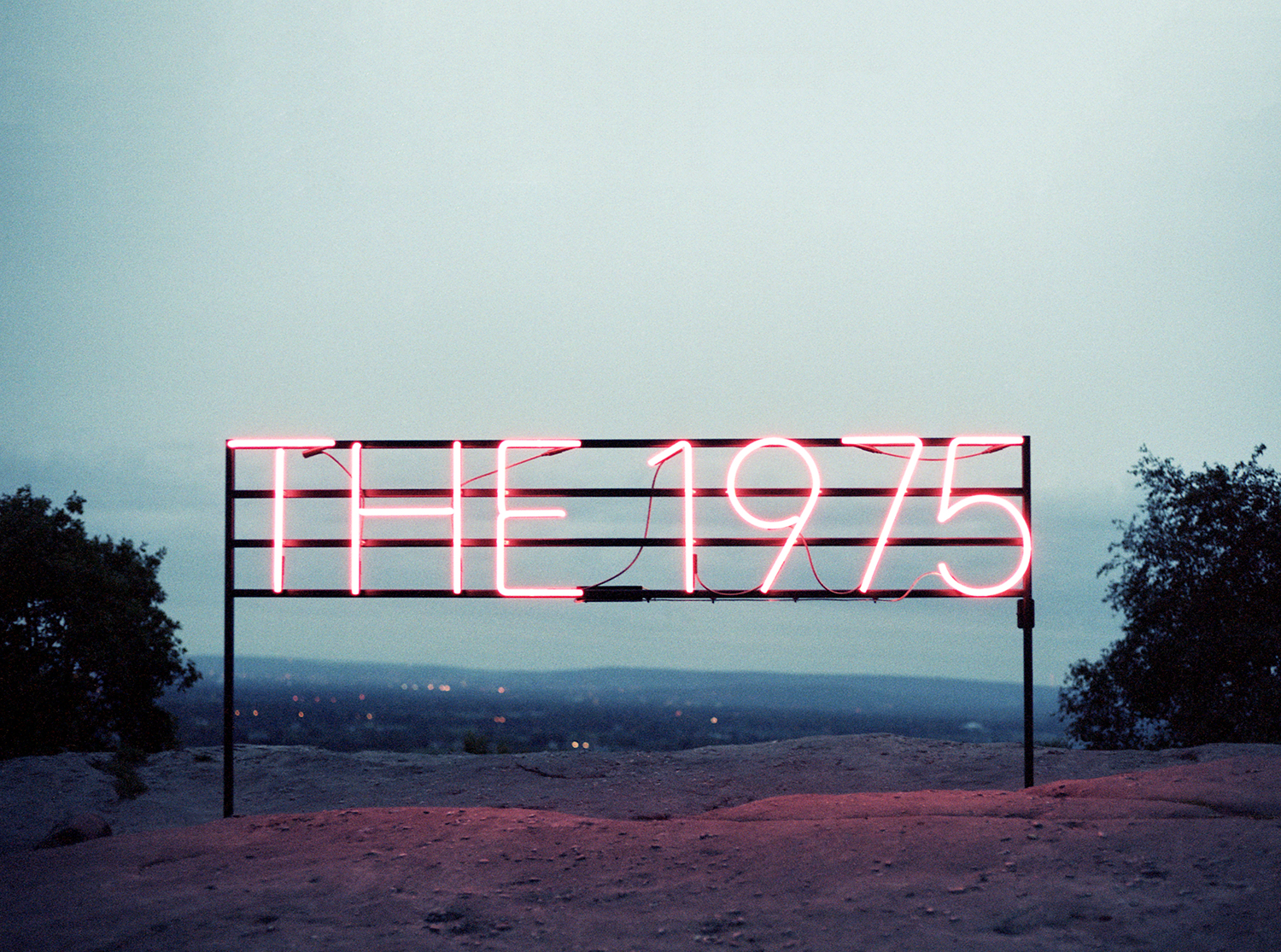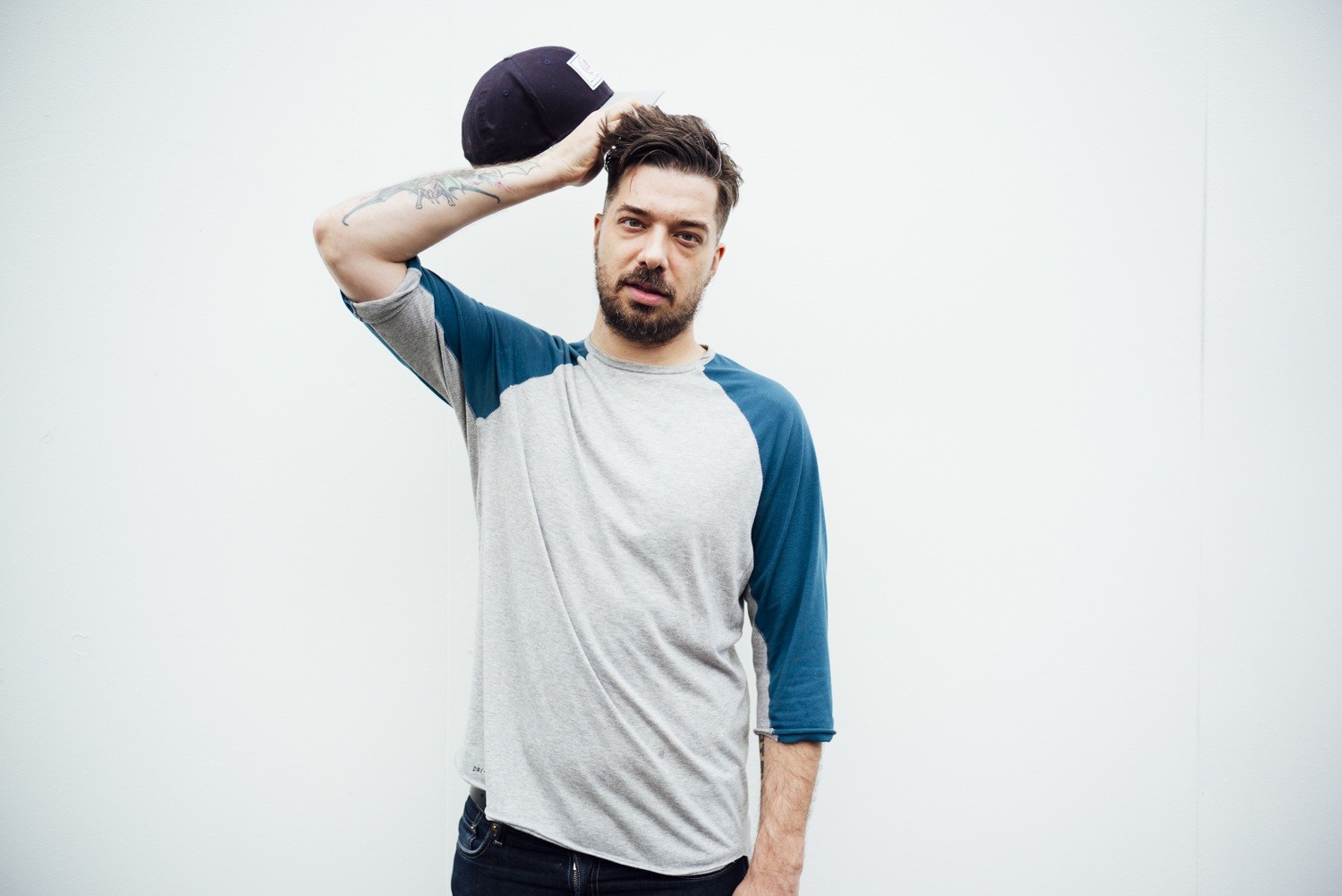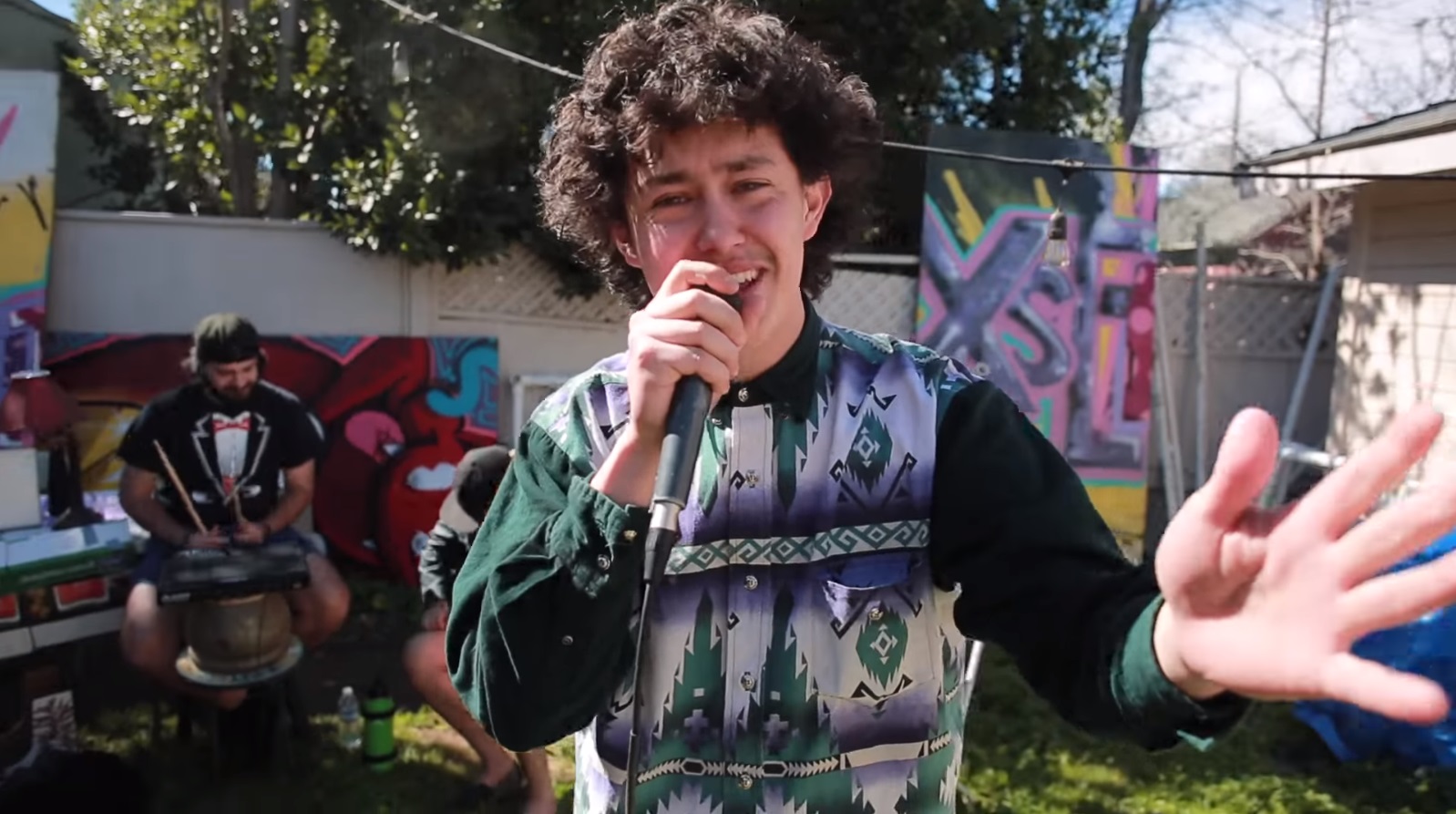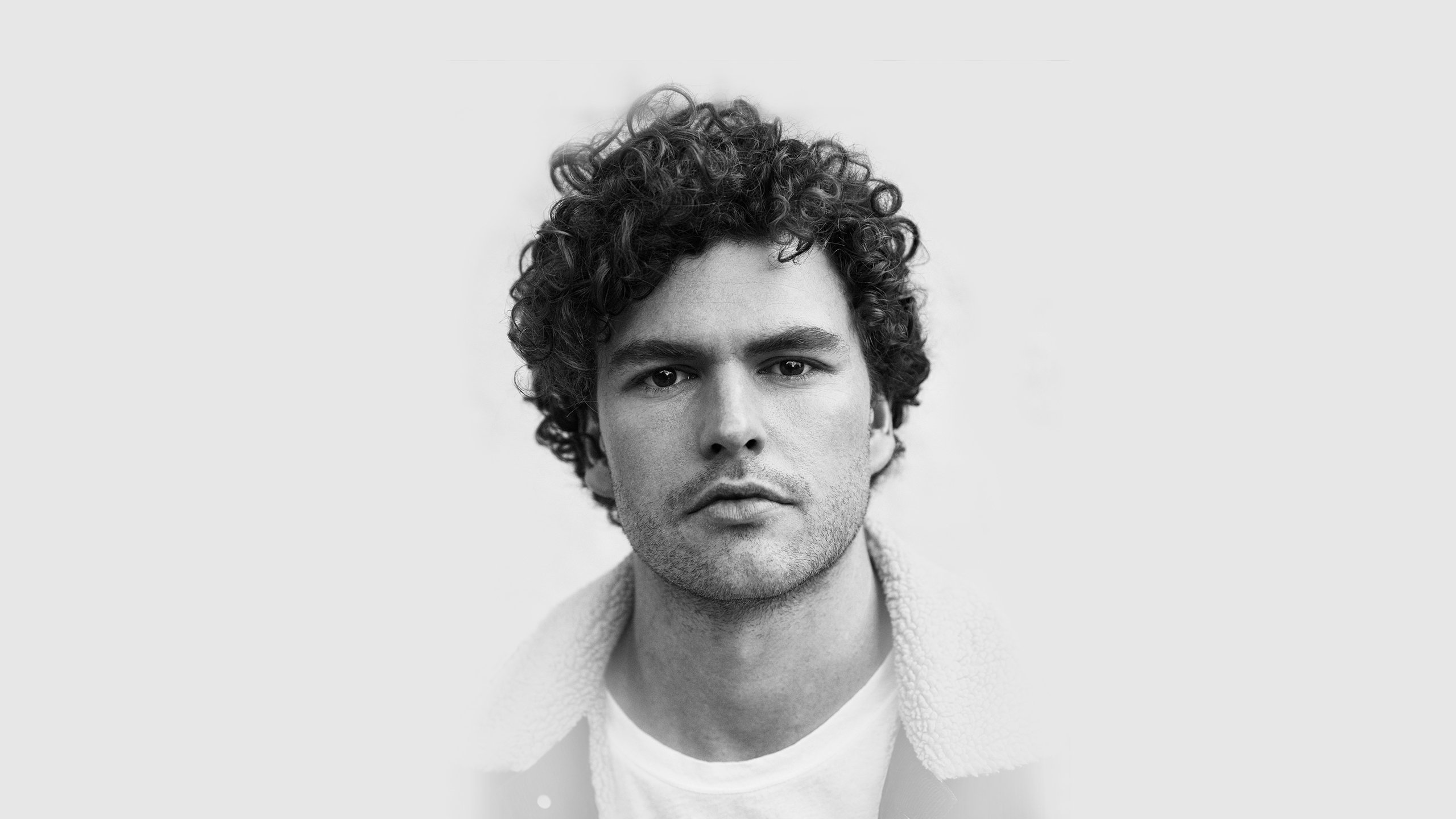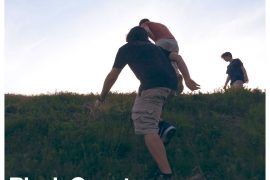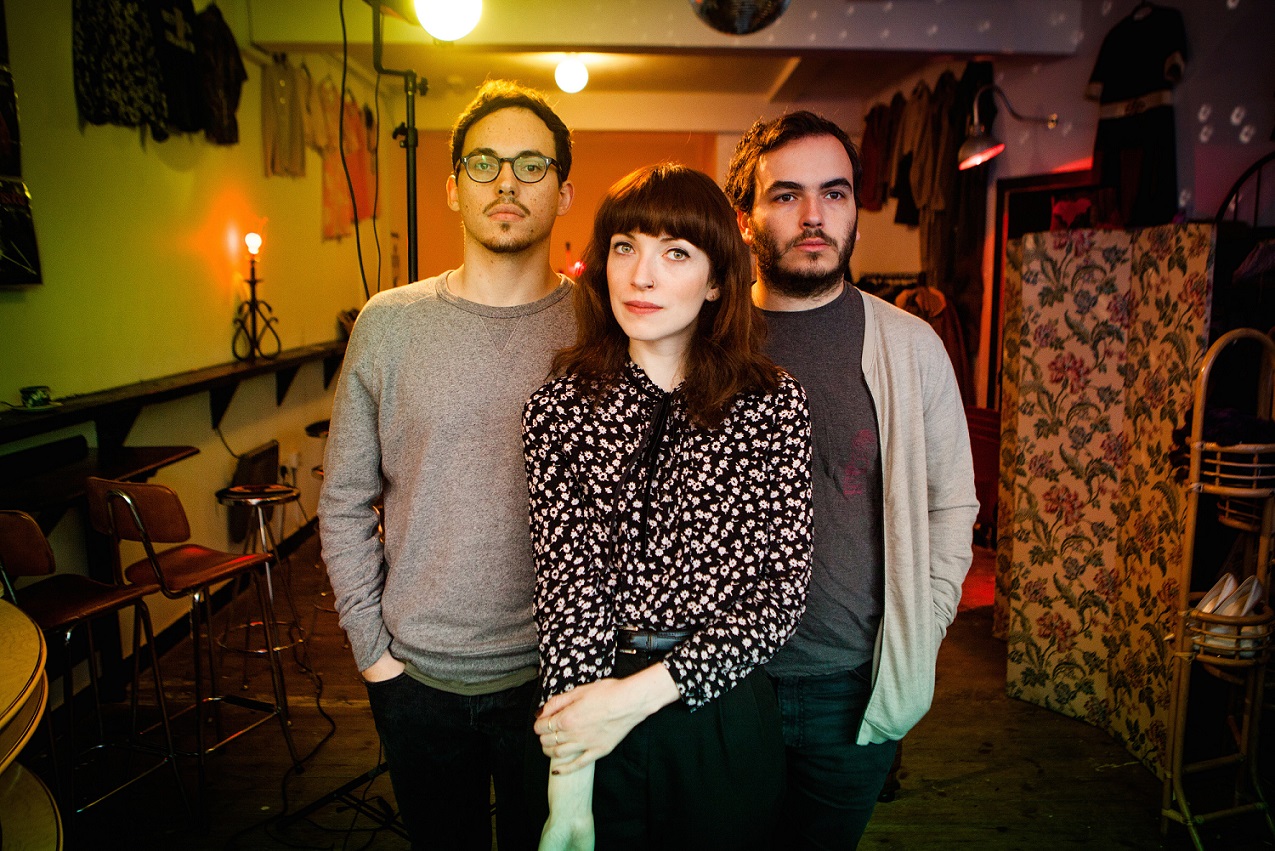Washington, D.C.-based singer and producer dreamcastmoe’s debut for Ghostly International, ‘Sound is Like Water – Part 1’ continues his work creating music that is as fascinating as it is disorienting.
Stream: ‘Sound Is Like Water, Pt. 1’ – Dreamcastmoe
We were a Nintendo house. Or, at least, during the portion of my childhood and early teenage years when I was legitimately interested in video games such as 슬롯 카지노, I was a Nintendo kid.
The original, 8-bit Nintendo Entertainment System that turned up—maybe for my birthday, maybe for Christmas, when I was six or seven, complete with the orange and gray gun used for Duck Hunt, and the crinkly, incredibly cumbersome Power Pad to use for that track and field game, frantically running in place on it in front of the television.
There was the Game Boy, with Tetris and Kirby’s Dream Land, and the Super Nintendo. I had convinced someone in my family that I couldn’t live without one, and received it for Christmas in 1993—primarily so that I could play what I didn’t realize at the time was the sanitized version of Mortal Kombat.
Lastly, it was inconvenient to carry and set up, and it was highly disorienting to use the Virtual Boy headset two years later.
And I don’t know why exactly—perhaps because it was, more than likely, relatively low in price by this point at the toy store that resided in my hometown for a few years in the mid-1990s, long after I was too old to be interested in spending my money there, but when my parents divorced in 1995—and I don’t even really remember why, but I must have insisted to my father that he purchase a video game system for me to use while I was over at his apartment for visitation weekends.
We bought a Sega Genesis.
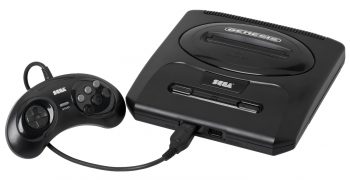
It, of course, came with one game — Sonic The Hedgehog 2, and we bought one other game: a Doom knock-off, first-person, hyper-violent shooting game, Zero Tolerance. Occasionally, I would rent a game to play from the video store near his apartment, but I’m confident that overall, the Sega Genesis sat on a shelf within his particle board entertainment center, collecting dust.
*
There have been both albums and artists, throughout my life, that I have felt compelled to listen to, and at the time, despite whatever effort, I put into it, the album, or the artist, didn’t connect with me.
Something was keeping me at arm’s length.
But within that arm’s length, though, there is also usually something about it that I find still very alluring—and the artist or album is something I find myself drawn to later on in life, despite my initial inability to connect with it completely during that first attempt.
And with some of these, when I return to them much later on—a decade later, sometimes longer, I find that I will be in a place where, for whatever reason, it’s finally something that I can understand and appreciate more.
It took me several years to find the expression that would accurately articulate my relationship with albums like this—and what made the most sense is that, whatever the album or artist in question is, during the first time I tried listening, it was something that I was simply “not ready for.”
And the thing is, that, I may never truly be ready—I may return to something years later, and it still might keep me at a distance. But there are other things that, perhaps due to my age, or changes and growth in musical tastes and appreciation, I arrive at the place where I am, finally, “ready” for it.
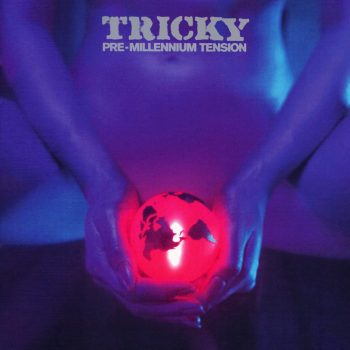
The example that comes to mind first is Tricky’s sophomore album, 1996’s Pre-Millennium Tension—an album so bleak and claustrophobic it sounds like it, from the moment it begins up until its conclusion, is going to collapse on itself. Was I ready for it at the age of 13, when I received a copy of it after seeing the video for its single “Christiansands” late at night on MTV? No, absolutely not.
Was I ready for it a few years later, when I tried again during my final year in high school—the era where I was slowly easing into “trip-hop” as a genre? Maybe more ready than I was as a middle schooler, but it wouldn’t be well after the album was, like, 15 years old until I finally began to appreciate and understand the nuances and the hideous beauty found within those layers of seemingly never-ending darkness.
And, if I had to guess, if I had encountered an artist like Dreamcastmoe earlier in my life—at a younger age, or simply just at a different time, there is a high possibility that he would be an artist that I would not be “ready” for. And the truth is, I might not even really be ready for him now.
But, like many of those artists, and albums, in those experiences I’ve had, there is something so alluring about his music that, if I had not been “ready” to try and wrap my head around it, it would have kept calling to me until I was.
*
Well after my interest in video games began to drift, because they were a part of the zeitgeist for teenage boys, I was able to, at least until a certain point, keep a rudimentary knowledge of them throughout middle school and into high school, primarily through advertisements on the back of comic books, or in magazines.
I was aware—maybe not entirely aware of the extent the systems had failed commercially upon release in the United States—that Sega had tried releasing both a CD-ROM system, and a 32-bit adaptor for the Genesis, before the arrival of the Sega Saturn in 1995. And in a growing, competitive marketplace, the Saturn, like the company’s attempts to keep the Genesis going longer than its shelf life warranted, was considered a failure, being discontinued after only three years.
In 1999, Sega released what would be their final home system, the Dreamcast.
Retrospectively, the console has been described as being ahead of its time. Still, like almost all of its predecessors, it sold poorly, and was ultimately unable to hold its own or fight for a space against other systems that had become popular in the mid to late 1990s, like the Playstation, or its seemingly much more popular follow-up.
The Dreamcast was discontinued after two years, and Sega ceased its development and creation of home systems.
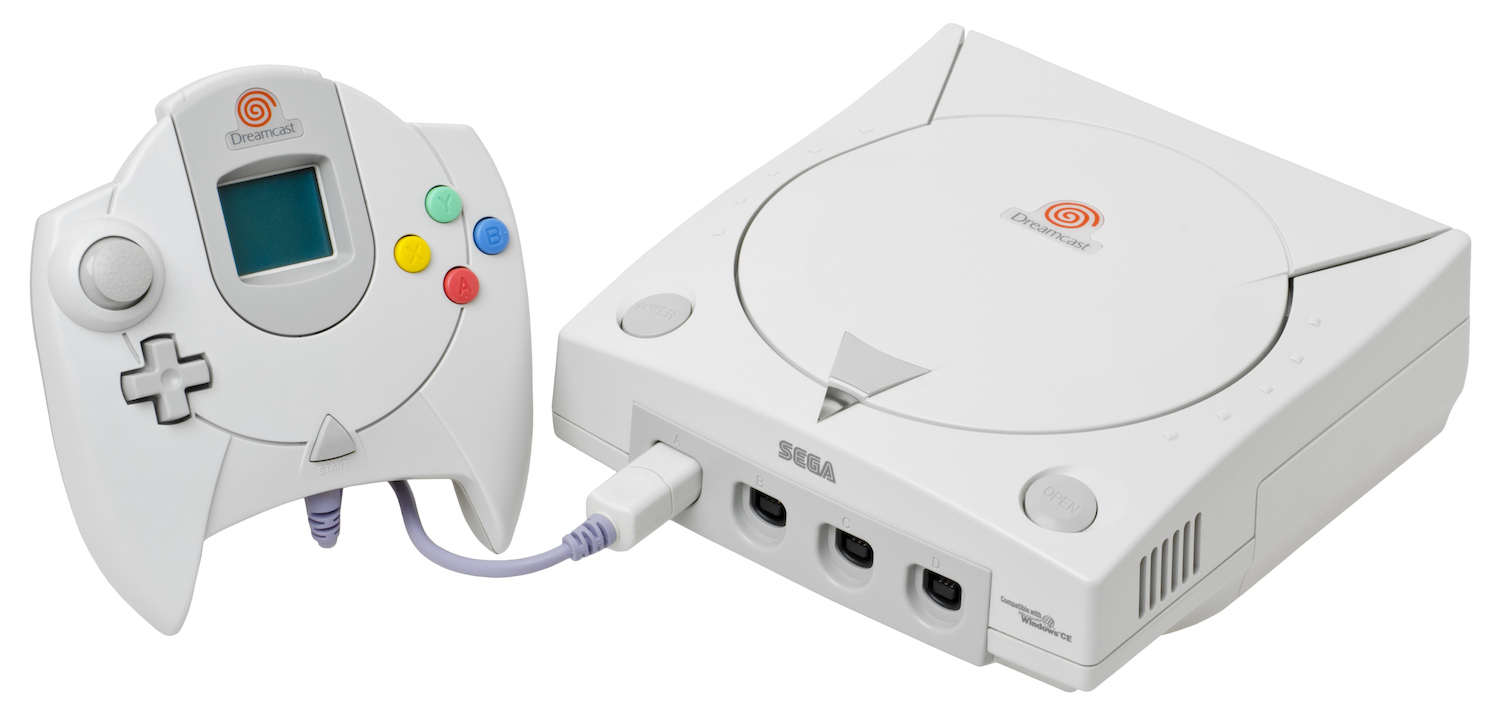
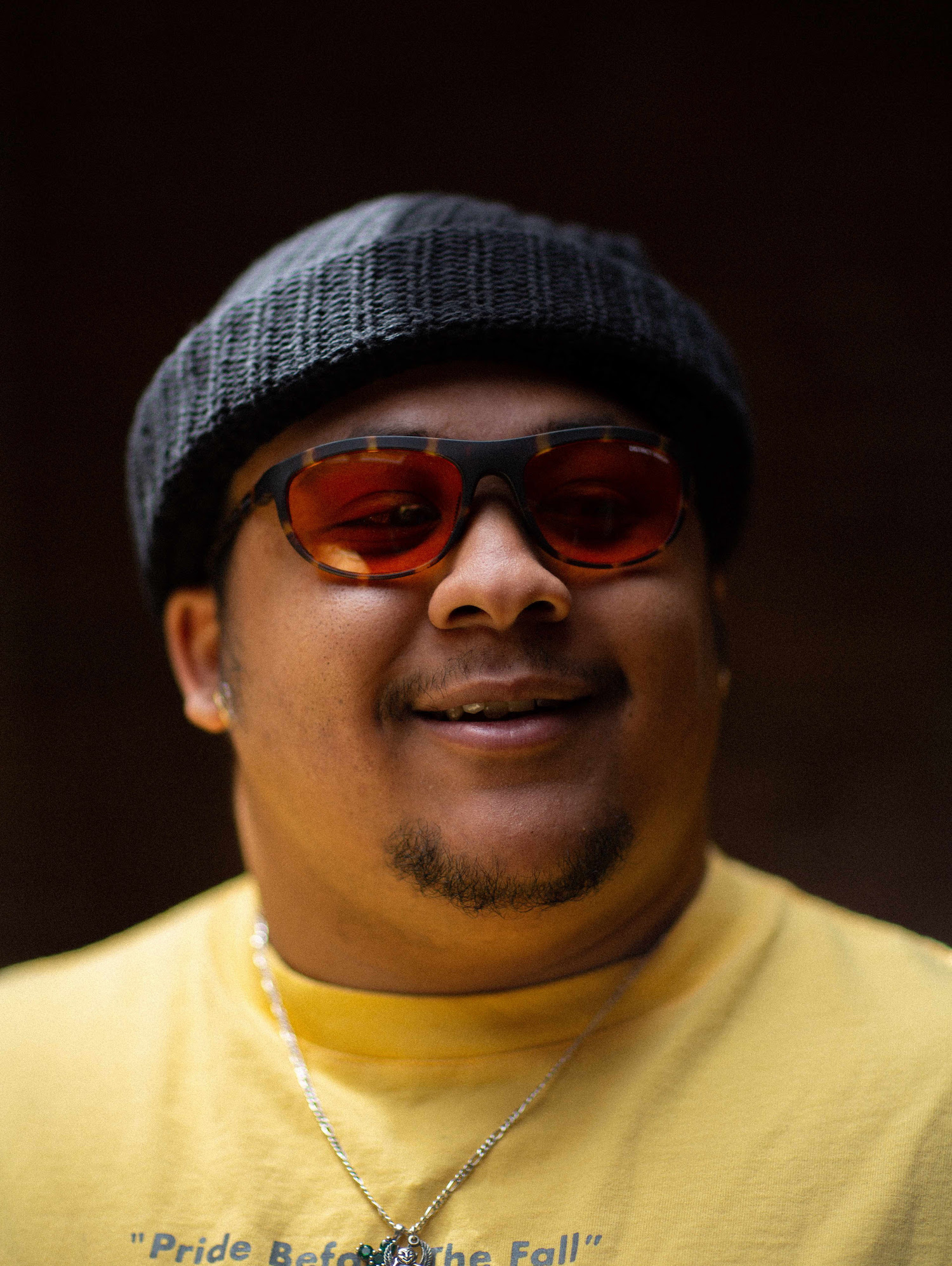
Davon Bryant began releasing music in 2017 — first under the name Dreamcast, then as Dreamcastmoe, and based on the aesthetic he has cultivated, it makes sense that some of his earliest singles were issued through People’s Potential Unlimited — a label I was first introduced to in 2018 through its involvement in the release of the idiosyncratic lo-fi rap album Eyes of A Key, from Mix-O-Rap, who recorded the entire LP on chintzy equipment while incarcerated.
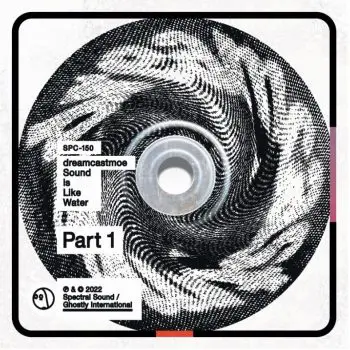
A year has passed between the release of Bryant’s previous effort under the Dreamcastmoe moniker, the After All This EP, and the arrival of its follow-up, Sound Is Like Water – Part 1. Released through Spectral Sound, the “freeform” subsidiary of the esoteric and beloved electronic label Ghostly International, this collection of five songs (with the implication it is part of a larger, longer gestating project) represents the real potential for Bryant’s profile to rise through this connection with a renowned label, offering the opportunity for more significant exposure.
And recently, what I have come to understand is that a lot of music is at its most fascinating to me when it is representative of a convergence — it doesn’t even have to be two entirely unalike things that are slowly closing in on one another. And as an analytical listener, it is less the two things outside of the convergence that I am even interested in, but more about what occurs within the space that forms within the collision.
Bryant’s work as Dreamcastmoe is representative of that kind of convergence. It is where he as an artist truly thrives — an amalgamation of different genres that, on paper, do not, at first, seem like they would work, but the result is something wholly unique that doesn’t just have to be heard to be understood, but is the kind of music that doesn’t ask you to listen — it asks you to immerse yourself in it instead.
Across the board with Bryant’s output as Dreamcastmoe, and especially present on Sound Is Like Water, there is a very palpable lo-fi element — a hazy feeling that, perhaps, is due to his penchant for the use of somewhat antiquated, dusty-sounding instrumentation. The Sound Is Like Water press release credits co-producers for several of the EP’s tracks. Still, there is a kind of visceral intimacy in how they sound — regardless of where they are made, or if they are the result of a collaboration, which is a strong indicator of Bryant’s roots in the techniques of home recording.
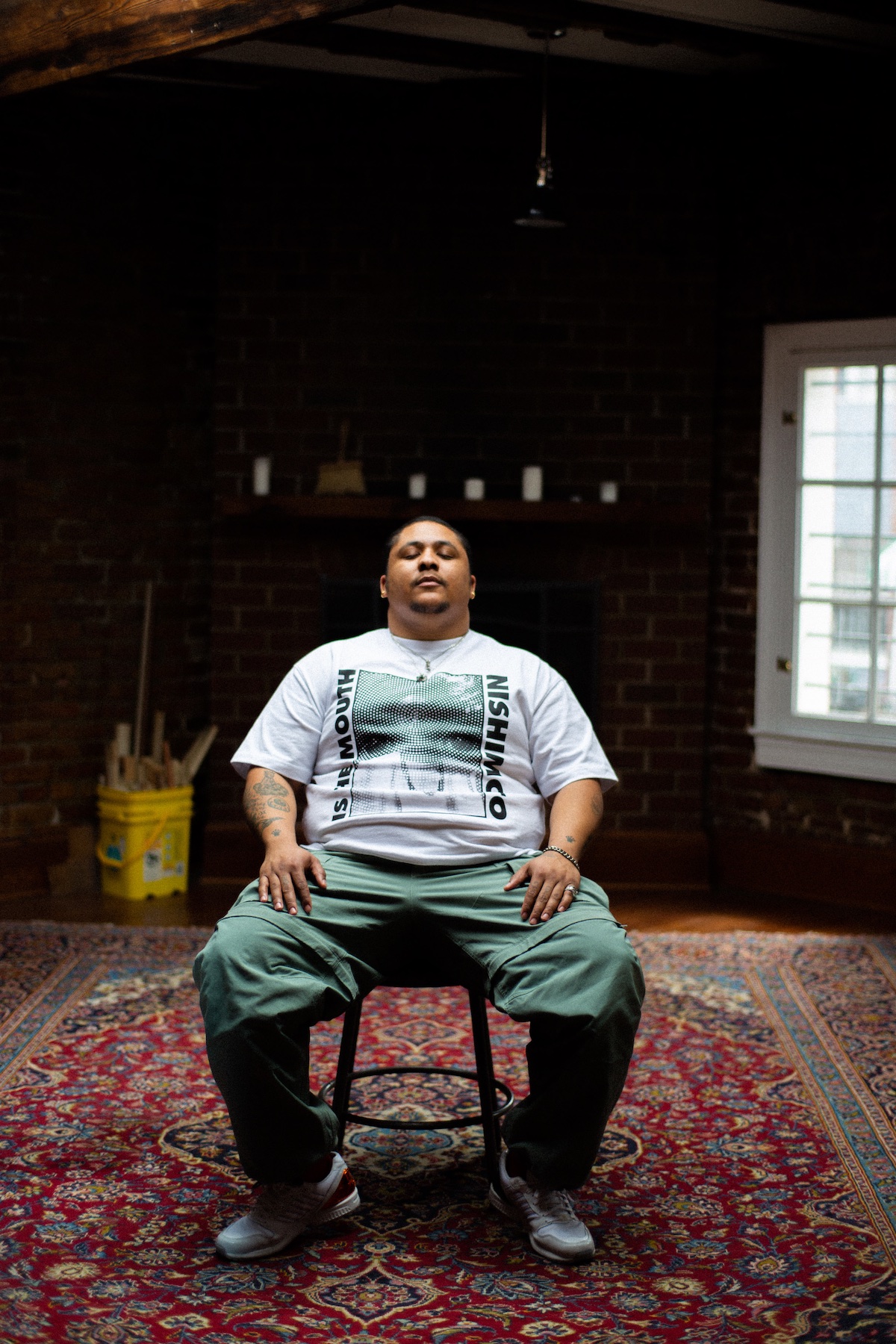
In the early 2010s, perhaps for lack of a better, or less dismissive descriptor, the sub-genre “PBR&B” was used when referring to a specific crop of artists who were slowly gaining popularity through blogs and word of mouth — a specific crop of artists making a particular sound that, at times, could be rather shadowy, and often was a blend of lo-fi, bedroom recorded aesthetics with a nod to Top 40 R&B from the 1990s. Dreamcastmoe, and the Sound is Like Water EP is, in a way, reminiscent of that small movement — throughout the effort, he continues to work, at finding the places where the R&B influence within his vocals both compliments the synthesizer-heavy, electronic instrumentation, as well as the areas where it creates a surprising sense of tension.
Water’s opening track, “El Dorado,” is one of those places where Bryant finds that tension. There is a woozy, tumbling sensation about the entire song as it opens with a stuttering, glitchy drum machine rhythm that then cavernously echoes off of itself, then joined by a wonky, antiquated-sounding synthesizer. The effect of the instrumentation is hypnotic, but within that state, there is something understatedly unsettling about all of it—I hesitate to refer to the synthesizer tone within “El Dorado” as “sharp” sounding. Still, in the way, it kind of drunkenly fumbles around within the swirling rhythm; it ends up cutting through at times, creating noticeable dissonance.
That dissonance is amplified once Bryant’s voice appears in the track — much less smooth, or soulful than elsewhere on Sound Is Like Water; there is a strained feeling to it, leaning into the already disorienting nature of the song. And regardless, though, of how disorienting or dissonant “El Dorado” might be, there is a subtle but undeniably infectious groove tucked into it — a groove that you cannot help but feel, even as the percussion oscillates wildly through your ears.
As Sound is Like Water begins to open up, it slowly becomes a little more accessible, and a lot less unsettling in comparison.
In the EP’s second track, “Complicated,” Bryant introduces a smoothness in his vocals and in the song’s aesthetic—though it is juxtaposed against an eeriness that lingers throughout the song. Less cavernous and woozy, there is more of a slink to the rhythm as it comes together from the skittering drum machine programming, and the overall warmth of the long notes coming from the synthesizers.
“Accessibility” to a casual listen, or to a specific kind of listener is probably not something Bryant considers when creating music as Dreamcastmoe, but the song that opens itself up, and is the least murky or challenging, is “RU Ready,” Sound is Like Water’s centerpiece.
The song is the most traditionally structured and, compared to the other four songs on the EP, has the most focus and balance in its elements and how they are executed with admirable precision. There is a soulful and jubilant nature to the way Bryant’s voice soars—even right from the song’s opening line of, “Are you ready to let your hair down?,” finding its place among the bright and crisp-sounding percussion and the impressive overall dedication to a smooth, swaying R&B vibe.
I’d be crazy to count the moments
The times you sat with me when I needed you the most
Told me the things that I needed to see
Young Black man, really tryin’ to be what I can be
And I’m really from DC (Ooh), it’s in my heart
It’s in the way that I walk and I talk
Tryna make moves when I need it to be
Man, my city goin’ through it, really need me to be
Somethin’ great from the start and we gon’ rock
Man, I’m in it from the start, never stop
Go get the bag, bring it back to the park
Split it with family and we gon’ get far
Are you ready to let your hair down?
Ride me steadily
If you take over, I just might drown
The way that you grab
Pressure through your fingers, holdin’ onto me
You know I adore you
Kissing you slowly just might prove it
Not at all what we planned
We on the phone, makin’ plans
Some dreams, they just flow
We good wherever we go
Structurally, with the center of Sound is Like Water being the most accessible, it then grows more dissonant and chaotic as it pushes toward its conclusion.
The rhythm of the EP’s fourth track, “Novocaine,” is slightly reminiscent of a codeine slow Reggaeton beat — with glitches and clattering folded into it. The impressive thing with “Novocaine” is that even though the rhythm is highly disorienting at first, it is something that you can find yourself nodding your head along to. However, that ends abruptly with the startling burst of an organ, followed by Bryant’s voice — appearing here with a layering effect that flattens the sound of it ever so slightly in the way it doubles his vocals.
Sound is Like Water ends with its longest, and perhaps most cacophonic track — “Cloud Weather, Wear Boots.” It begins with the sound of ’90s leaning techno/house-inspired synthesizer pattern before a club-ready beat, thumping and unrelenting, finds its place within the waves of the synth. The press release of Sound is Like Water refers to “Cloud Weather” as a “blitzing dance-punk track,” and that is an accurate assessment — less unsettling, or eerie as some of the other tunes on this EP, there is something very “punk” about this in terms of the way Bryant delivers the song’s few lyrics in a hazy stream of conscious kind of way, and just how utterly chaotic and borderline confrontational it can become the further along the beat and synthesizers pulsate along.
Aside from the convergence that Bryant creates across Sound Is Like Water, and the wholly original music he’s producing, one of the most obvious things about the bulk of this EP is that Bryant is very serious about the world he’s building. There is an atmosphere created from the moment it starts, and he guides you through it until the very end; a collection of songs that is less focused on either the music or the lyrics, and is much more interested in the interplay between the two elements and the kind of aesthetic that can be created when they serve as devices that both compliment and contrast one another.
And what I am uncertain, as part one of Sound is Like Water concludes. A second part apparently in the works, is if the “Dream Cast” in the moniker “Dreamcastmoe” is, in fact, a reference to a moderately obscure, financially ruinous video gaming system from over 20 years ago — if it is, it does take a certain kind of person to understand and appreciate the reference. And perhaps that is the kind of person Bryant wants to continue to attract to his output under the name.
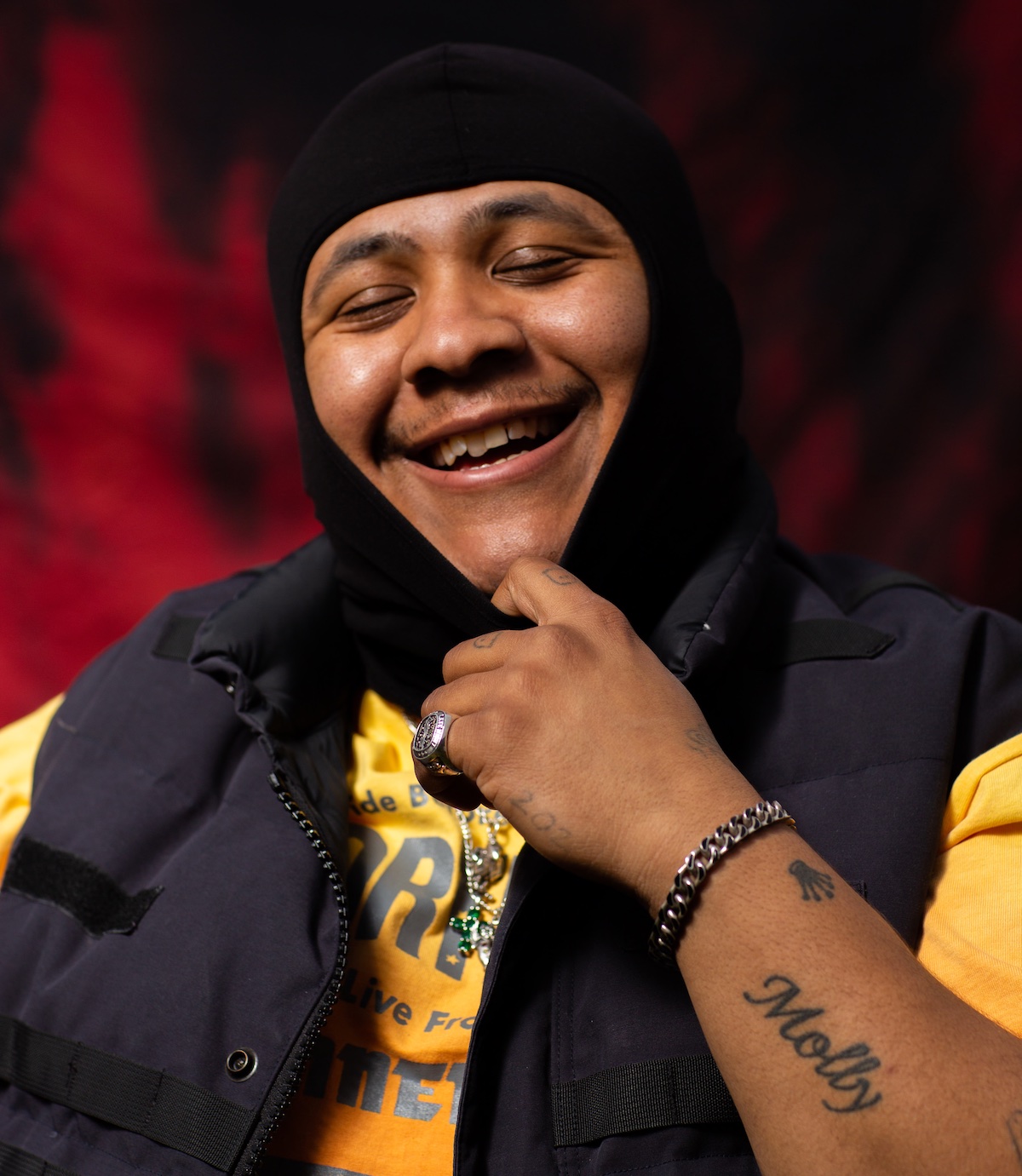
Within this context, of listening to and then analytically thinking about Sound Is Like Water, it was not an album, and Bryant is not an artist that I was not “ready for” — regardless of if you are “ready” or not to hear it, it is the kind of release that does require you to be in the right frame of mind, or “mood,” if you will, to listen to it and take something away from the environment that’s created — the line that is perpetually walked between something alluring and something uneasy, and the place, much like the convergence of R&B and lo-fi electronics, the line is blurred beyond recognition at times.
— —
:: stream/purchase Dreamcastmoe here ::
Stream: ‘Sound Is Like Water, Pt. 1’ – Dreamcastmoe
— — — —
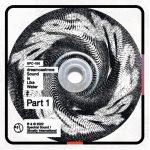
Connect to dreamcastmoe on
Facebook, Twitter, Instagram
Discover new music on Atwood Magazine
? © 2022
:: Stream dreamcastmoe ::

